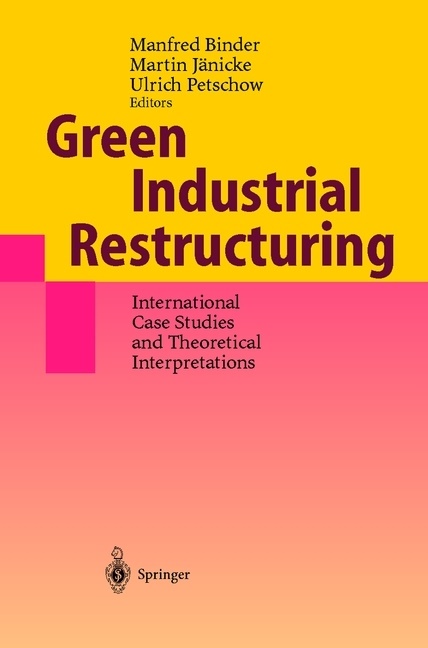Read more
Structural change in basic industries is usually interpreted as an autonomous economic process. Some authors claim that there is a tendency to use the "end of the era of materials", thus resulting in a decline of the basic industries. Such a process would obviously benefit the environment. Classic economic theories, which deal with structural change in a rather holistic way, correspond to this trend, predicting either a shift towards manufacturing and services or a relocation of old basic industries to developing countries. On the basis of this dematerialization hypothesis, comparative case studies analyze in detail the driving forces behind industrial restructuring with regard to different industries and countries in Europe, where such a decline has been observed in recent years.
List of contents
Dirty Industries in Decline: An Introduction to the Case Studies.- A. Theoretical Approaches.- Towards an End to the "Era of Materials"? Discussion of a Hypothesis.- Structural Change in Basic Industries and the Environment - Theoretical Foundations and Classic Economic Theories.- New Theoretical Perspectives on Industrial Restructuring and their Implications for (Green) Industrial Policy.- An Evolutionary Perspective on Structural Change and the Role of Technology.- Sectoral Network Structures as Determinants of Structural Change.- Industrial Complexes as the Centres of Gravity for Green Industrial Restructuring.- Multinational Enterprises and Industrial Restructuring: A Strategic Environmental Management Approach.- Opportunities for a Green Industrial Policy from an Evolutionary Technology Perspective.- Global Change and the Economic Charm of the Environment.- B. The Case Studies.- Chlorine Production in Germany.- Fertiliser Production in Austria.- Coal and Steel in Western Europe.- Aluminium Production in Germany.- Cement Production in Austria.- Cement Production in Denmark.- Oil Refineries in France.- Oil Refineries in the Netherlands.- Nuclear Energy in Germany.
About the author
Professor Dr. Martin Jänicke ist Leiter der Forschungsstelle für Umweltpolitik am Otto-Suhr-Institut für Politikwissenschaft der FU Berlin und Mitgleid im Rat von Sachverständigen für Umweltfragen.
Ulrich Petschow is an economist and researcher at the Institute for Ecological Economy Research (IOEW). His main research interests are cost-benefit analysis, river basin management, the analysis of institutions and new approaches in environmental policy.
Summary
Structural change in basic industries is usually interpreted as an autonomous economic process. Some authors claim that there is a tendency to use the "end of the era of materials", thus resulting in a decline of the basic industries. Such a process would obviously benefit the environment. Classic economic theories, which deal with structural change in a rather holistic way, correspond to this trend, predicting either a shift towards manufacturing and services or a relocation of old basic industries to developing countries. On the basis of this dematerialization hypothesis, comparative case studies analyze in detail the driving forces behind industrial restructuring with regard to different industries and countries in Europe, where such a decline has been observed in recent years.

